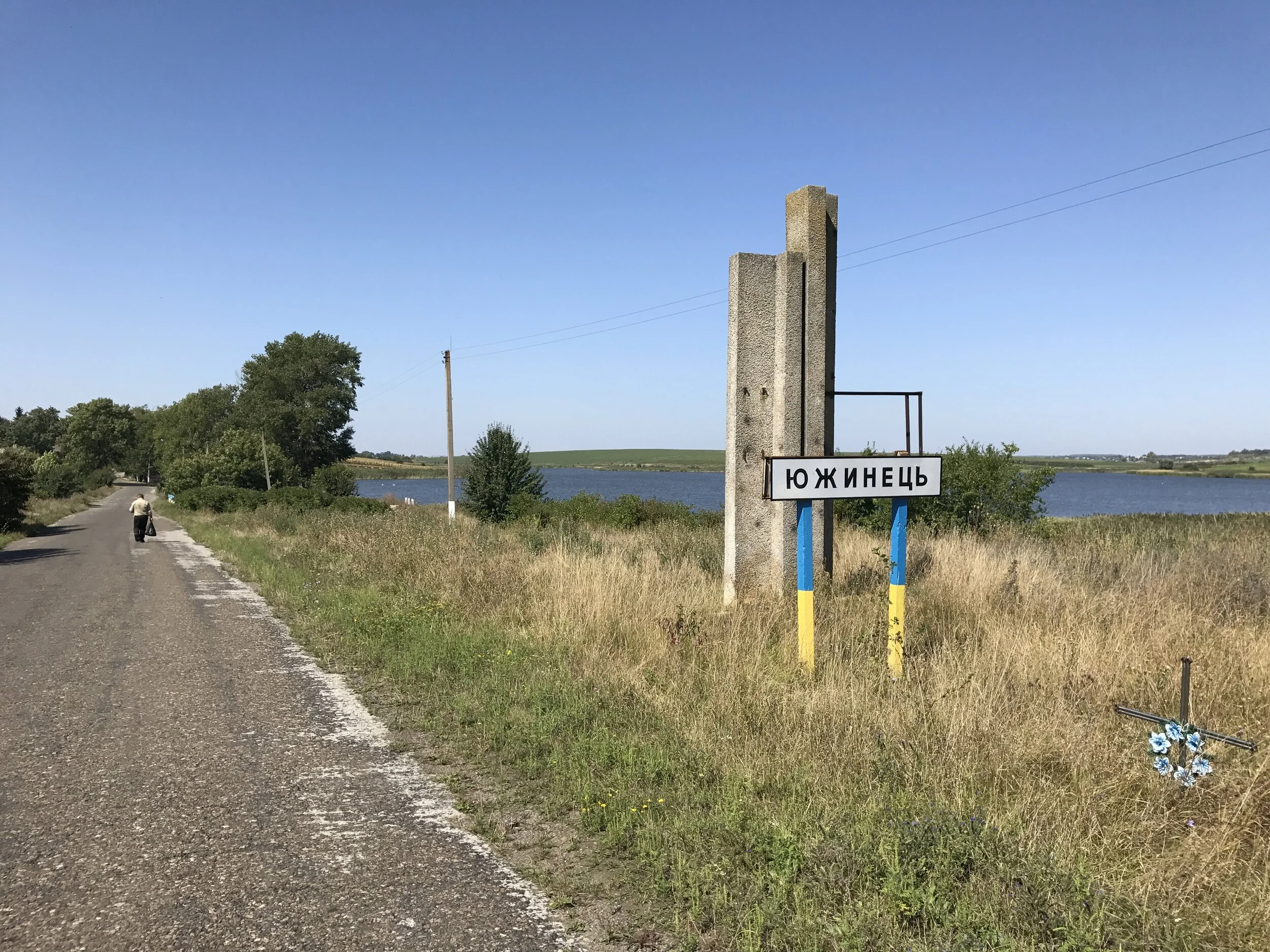The Reich family in Yuzhinets
The following map shows the village of Yuzhinets. According to his own account, Wilhelm Reich was probably growing up here from 1907-1915 on a large farm attached to an enormous amount of agricultural land (appr. 2000 acres, i.e. ≈ 8 square kilometers) even including a lake. “Our estate included a fish pond of approximately five hundred hectares which offered a magnificent opportunity for hunting wild ducks and otters.” (Wilhelm Reich, Passion of Youth, p. 24). All the buildings of the former agricultural estate have disappeared today. The only reminder of the Reich farm is the family well on the road to the neighboring town Shyshkivtsi. In his autobiographical notes Wilhelm Reich describes the time he spent in Bukovina as the best of his life:
“Family life at our house during this period (ages five to ten) was truly ideal, with the exception of incidents which must certainly occur in all families. Father prospered financially, although never brilliantly, because of his honesty. He put nothing aside, but lived within his means in accordance with his and his family's needs. We occupied a house with eight rooms, in addition to side rooms, and thanks to Mother's sense of orderliness, every corner of the house was pleasantly livable. Our education was channeled in the best possible directions, with the exception of a few errors stemming from the general trend in those days. For four years we had a highly intelligent girl living in our home to teach and educate us. There was also no lack of merry get-togethers, sometimes at home and occasionally in town. We lived as one can live only in the country, close to nature. Father was well known and esteemed in his own circles in town, and Mother's kindness and gentleness captured hearts wherever she went.” Wilhelm Reich, Passion of Youth
The following map shows the historical places identified in relation to the Reich family, with the exception of the Jewish mass grave site from 1941—Wilhelm Reich had left Yuzhinets as the last of his family in 1915, under the pressure from the Russian troups.
Farm well
LAKE/Pond
At the Bukovina lakes and ponds Wilhelm Reich had his first childhood experiences of unhibited sexuality, when he observed the men of the village catching fish: “They were either completely naked or wore only shirts” (WR, PoY, p. 13).
Later on he also discovered his interest in hunting there. “The employees whose task it was to protect the fish pond from poachers were equipped with guns and I bribed one of them with fifty heller to row out with me. He agreed, and how proud I was when, after missing several times, I saw a wild duck lying in the water, dead. But now what? I could not admit that I had shot it myself and therefore persuaded the keeper to accompany me home and claim that he had shot the duck. That was the way it started, and from then on, I went hunting frequently, although only in Father's absence.” (WR, PoY, p. 24).
On a sad note the lake may also have contributed to the death of Wilhelm Reich’s father Leon. After the suicide of his wife Cäcilie he went there to fish in the cold with barely any clothes on. Eventually Leon caught tuberculosis and died in 1914.
Jewish Mass grave Memorial
According to documents and eyewitnesses, at this trench in the fields appr. 150 people were executed by machine fire in 1941 by the Romanian police following orders of the German Nazi occupants. Among the victims are 20 Jewish families from Yuzhynets, Shyshkivtsi and surrounding villages; probably also the Jewish tenants of the former Reich estate. Also non-Jewish people opposing the Nazi regime were by gunshot at the site. Further information
